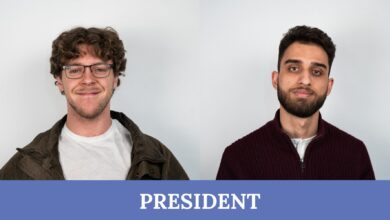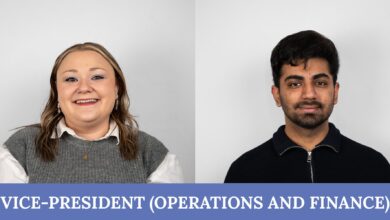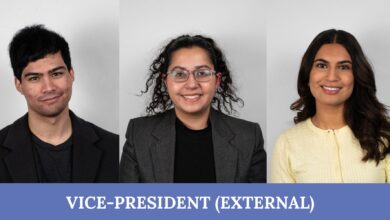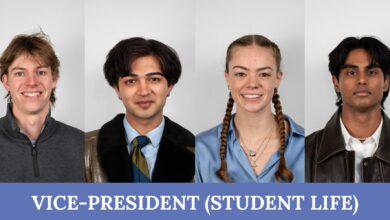SU Elections 2020 Dissection: Vice-President (External)
The panelists found one candidate who clearly should win
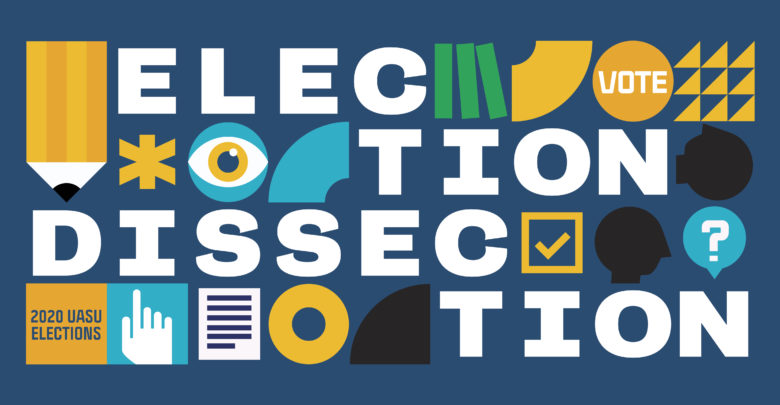 Peter Elima
Peter ElimaEvery year The Gateway hosts a panel to determine who should and who will win in each race for the Students’ Union elections to assist those undecided on who to vote for. Our election dissection panel is here with their insights on student politics and their takes on this year’s candidates.
Opinions expressed by the panellists do not reflect those of The Gateway.
The panel
This years panel for election dissection included:
- Victoria Chiu: current first-year law student and former Online Editor and Arts & Culture Editor at The Gateway.
- Kevin Mpunga: second-year bilingual nursing student and vice-president (media and marketing) at the Black Students’ Association.
- Rory Storm: U of A alumni, past candidate for Students’ Union vice-president (student life), and past president of the U of A Interfraternity Council.
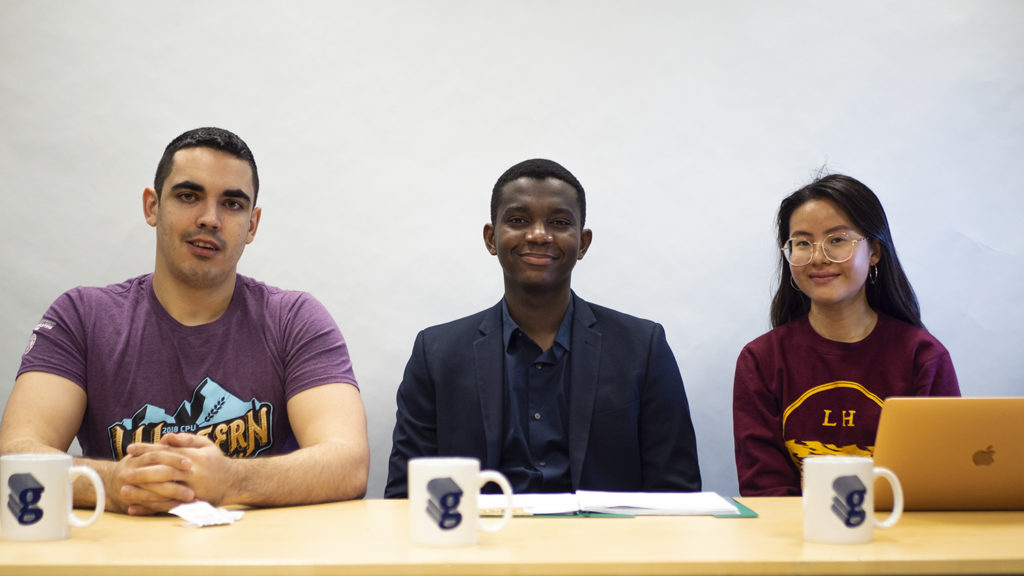
The candidates
Robert Bilak, fourth-year political science student and speaker of Students’ Council.
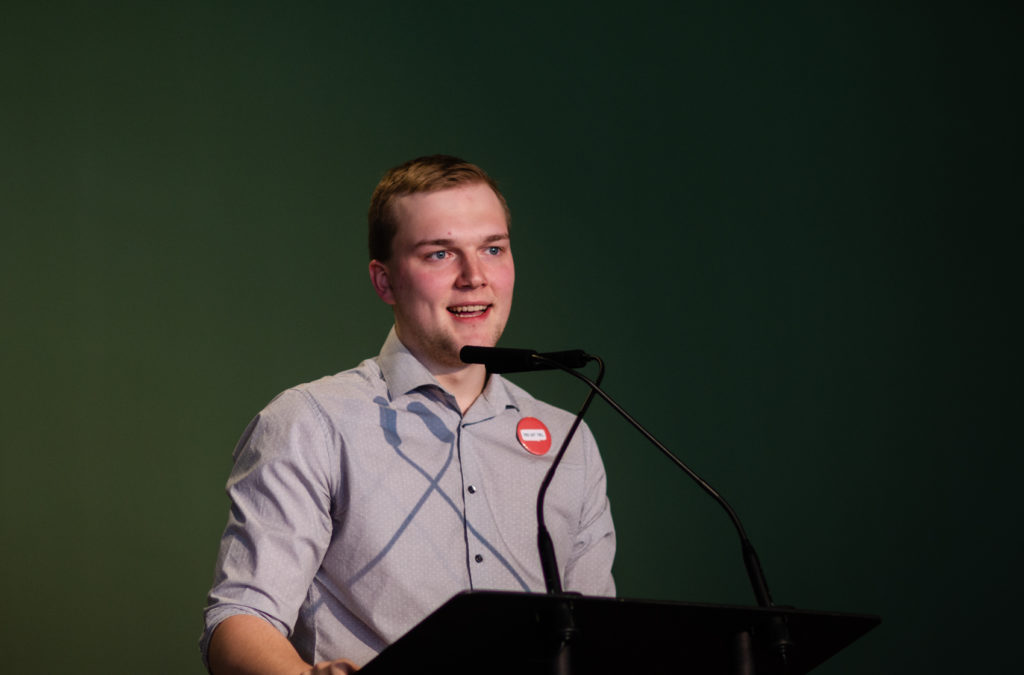
Rowan Ley, fourth-year political science student and current Board of Governors representative.
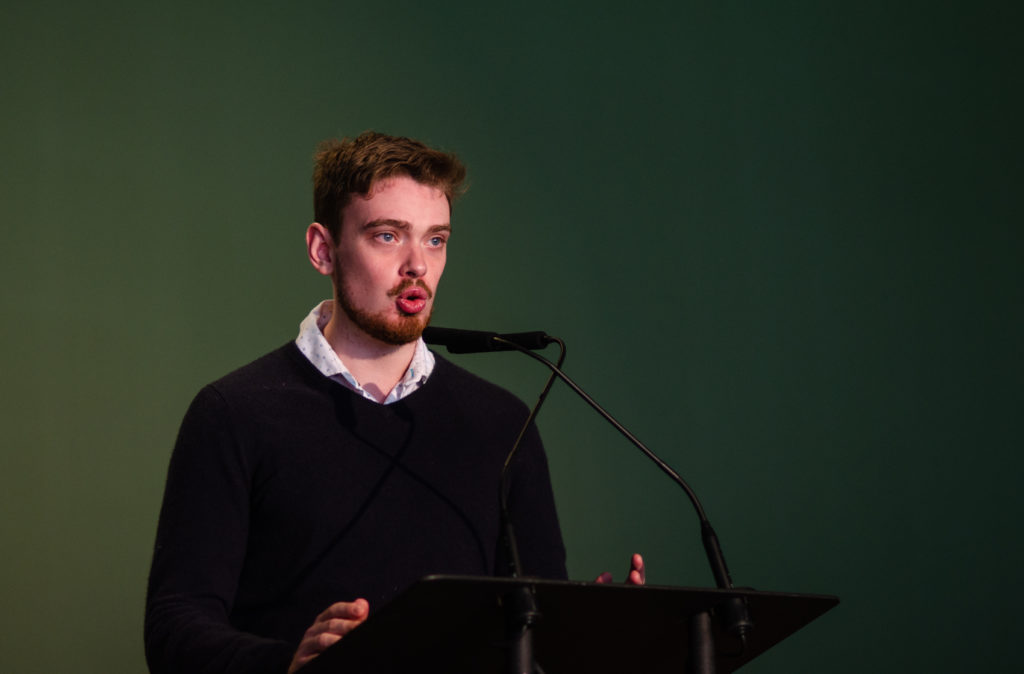
The panel began discussion about the vice-president (external) race by looking at the two candidates’ platforms. While they agreed both presented “excellent” and “well researched” ideas, they chose Ley’s as the strongest.
“I think we have two of the strongest vice-president (external) platforms in a while [this year],” Storm said.
“[Ley] had more solutions, more tangibles, and inclusion of students as a whole,” Storm said.
“Rowan [Ley] mentioned an actual plan for reducing tuition — which will be tough — but to me, Robert [Bilak’s] platform lacked that context,” Storm said.
Chiu said that while advocating to reduce tuition is difficult, it might be easier to advocate for reduced interest on student loans.
“They [student loans] just went up,” she said. “Now would be the time to push against that.”
Storm wished the candidates spent more time discussing their plans for fundraising, which both mentioned in their platforms. Earlier this year, Students’ Council passed a bill placing external fundraising for the Students’ Union as a means of generating alternative revenue within the portfolio of vice-president (external).
“This is a new aspect of the job,” Storm said. “Now could’ve been a really strong time to actually showcase some creativity with it.”
The panel agreed unanimously that both candidates’ inclusion to push for more work-integrated learning opportunities or expanding student employability are key issues, especially with performance-based funding coming online from the provincial government.
“As a recent graduate, the market is terrible right now,” Storm said. “I wish I had the opportunity to do more while in school to put me ahead.”
“Both of those guys are saying they will fight for those, which is needed for sure,” he added.
Chiu acknowledged that the two candidates have differing approaches for this goal. Ley wants to recreate the Summer Temporary Employment Program (STEP), which was eliminated by the provincial government in Budget 2019. Bilak wants to go directly to the federal government as he believes it will be easier to receive funding from them and expand the Canada Summer Jobs Program. Chiu said she wasn’t “sold” by either that their approach would be easier or more likely to occur.
“Definitely props to them for the differing approaches which seem concrete,” Chiu said. “But at the end of the day, students need employment… Both plans seem like a tough sell.”
For Mpunga and Storm, Ley’s idea of having one more seat at the Board of Governors for students — because students are paying more in tuition now — is really strong.
“Obviously if we pay more, than we should have more say in the matters,” Mpunga said.
Mpunga closed off the debate by mentioning how in the vice-president (external) platforms, and all candidates for the Students’ Union elections this year, had “next to nothing” about students in nursing or other healthcare programs.
“The faculty of nursing students… have a bit of a disconnect when election cycles are happening,” Mpunga said. “Some of the things the candidates are advocating for are primarily going to affect the general student body in arts in sciences… I wish they took time to ask us what we had as concerns or worked us in there more.”

